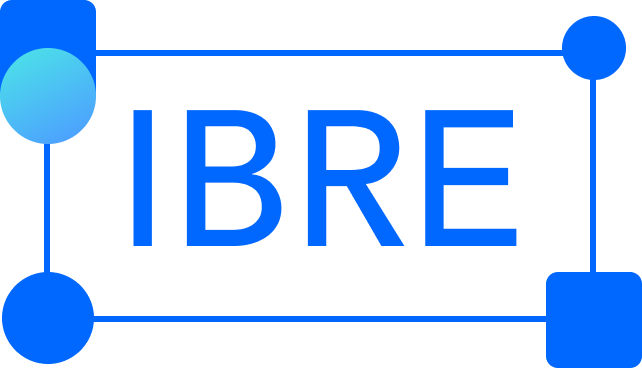RESEARCH
Our research at the Institute of Bioinformatics Research and Education aims at solving fundamental and applied problems in bioinformatics and systems biology, focusing on human genome variation.
Research Group Members

Alexander Predeus, Ph.D.
Scientific Advisor

Yury Barbitoff, Ph.D.
Research Director

Anton Changalidi
Associate Bioinformatician

Aleksandra Panteleeva
Bioinformatician
Our Projects
Our team is working in three main directions:
- 1Investigation of the genotype-to-phenotype relationships in human and beyondThe key goal of our research is the identification and in-depth analysis of pleiotropic effects, whereby a single gene affects a variety of traits. We tackle this problem by integrating genome-wide association data and other resources on the phenome scale.
- 2Analysis of the evolutionary aspects of human genome variation.We are interested in how patterns of within-gene genetic variation reflect functional significance of genomic regions. We utilize large-scale data sources such as the Genome Aggregation Database (gnomAD) to study mechanisms of mutation and selective pressure and develop new tools for annotation of genetic variants.
- 3Application of NGS bioinformatics for medical and population genetics.We collaborate with several research groups and private genetic laboratories to develop tools for interactive analysis of exome and genome sequencing data.
Our Publications
- Negligible effects of read trimming on the accuracy of germline short variant calling in the human genome. bioRxiv 2023 doi: 10.1101/2023.04.28.538608
Complete list of our previous works (click to expand)
As a research group at Bioinformatics Institute (2017-2022):
- Identification of Genetic Risk Factors of Severe COVID-19 Using Extensive Phenotypic Data: A Proof-of-Concept Study in a Cohort of Russian Patients Genes (Basel) 2022. doi: 10.3390/genes13030534
- RNA sequencing of whole blood defines the signature of high intensity exercise at altitude in elite speed skaters Genes (Basel) 2022. doi: 10.3390/genes13040574
- Systematic benchmark of state-of-the-art variant calling pipelines identifies major factors affecting accuracy of coding sequence variant discovery BMC Genomics 2022. doi: 10.1186/s12864-022-08365-3
- Development of SNP Set for the Marker-Assisted Selection of Guar (Cyamopsis tetragonoloba (L.) Taub.) Based on a Custom Reference Genome Assembly Plants 2021. doi: 10.3390/plants10102063
- Chromosome-level genome assembly and structural variant analysis of two laboratory yeast strains from the Peterhof Genetic Collection lineage G3 2021. doi: 10.1093/g3journal/jkab029
- Identification of novel variants in the LDLR gene in Russian patients with familial hypercholesterolemia using targeted sequencing Biomed Rep 2021. doi: 10.3892/br.2020.1391
- Analysis of the Spectrum of ACE2 Variation Suggests a Possible Influence of Rare and Common Variants on Susceptibility to COVID-19 and Severity of Outcome Front Genet 2020. doi: 10.3389/fgene.2020.551220
- Harnessing population-specific protein truncating variants to improve the annotation of loss-of-function alleles. bioRxiv 2020. doi: 10.1101/2020.08.17.254904
- A data-driven review of the genetic factors of pregnancy complications Int J Mol Sci 2020. doi: 10.3390/ijms21093384
- Systematic dissection of biases in whole-genome and whole-exome sequencing reveals major determinants of coding sequence coverage. Sci Rep 2020. doi: 10.1038/s41598-020-59026-y
- Phenome-wide functional dissection of pleiotropic effects highlights key molecular pathways for human complex traits Sci Rep 2020. doi: 10.1038/s41598-020-58040-4
- The spectrum of pathogenic variants of the ATP7B gene in Wilson disease in the Russian Federation J Trace Elem Med Biol, 2019. doi: 10.1016/j.jtemb.2019.126420
- Whole‑exome sequencing in Russian children with non‑type 1 diabetes mellitus reveals a wide spectrum of genetic variants in MODY‑related and unrelated genes Mol Med Rep, 2019. doi: 10.3892/mmr.2019.10751
- Whole‐exome sequencing provides insights into monogenic disease prevalence in Northwest Russia Mol Genet Genomic Med, 2019. doi: 10.1002/mgg3.964
- Recent advances and perspectives in next generation sequencing application to the genetic research of type 2 diabetes World J Diabetes, 2019. doi: 10.4239/wjd.v10.i7.376
- Identification of Novel Candidate Markers of Type 2 Diabetes and Obesity in Russia by Exome Sequencing with a Limited Sample Size. Genes (Basel), 2018. doi: 10.3390/genes9080415
- Catching hidden variation: systematic correction of reference minor allele annotation in clinical varian calling. Genet Med, 2017. doi: 10.1038/gim.2017.168
- Effect of gene-lifestyle interaction on gestational diabetes risk. Oncotarget, 2017. doi: 10.18632/oncotarget.22999
Our Events
Partners
- General partner: JetBrainsWorld's leading vendor of professional development tools.
Contact Us
If you have any questions or for potential collaborations please contact us at info@bioinf.institute.

